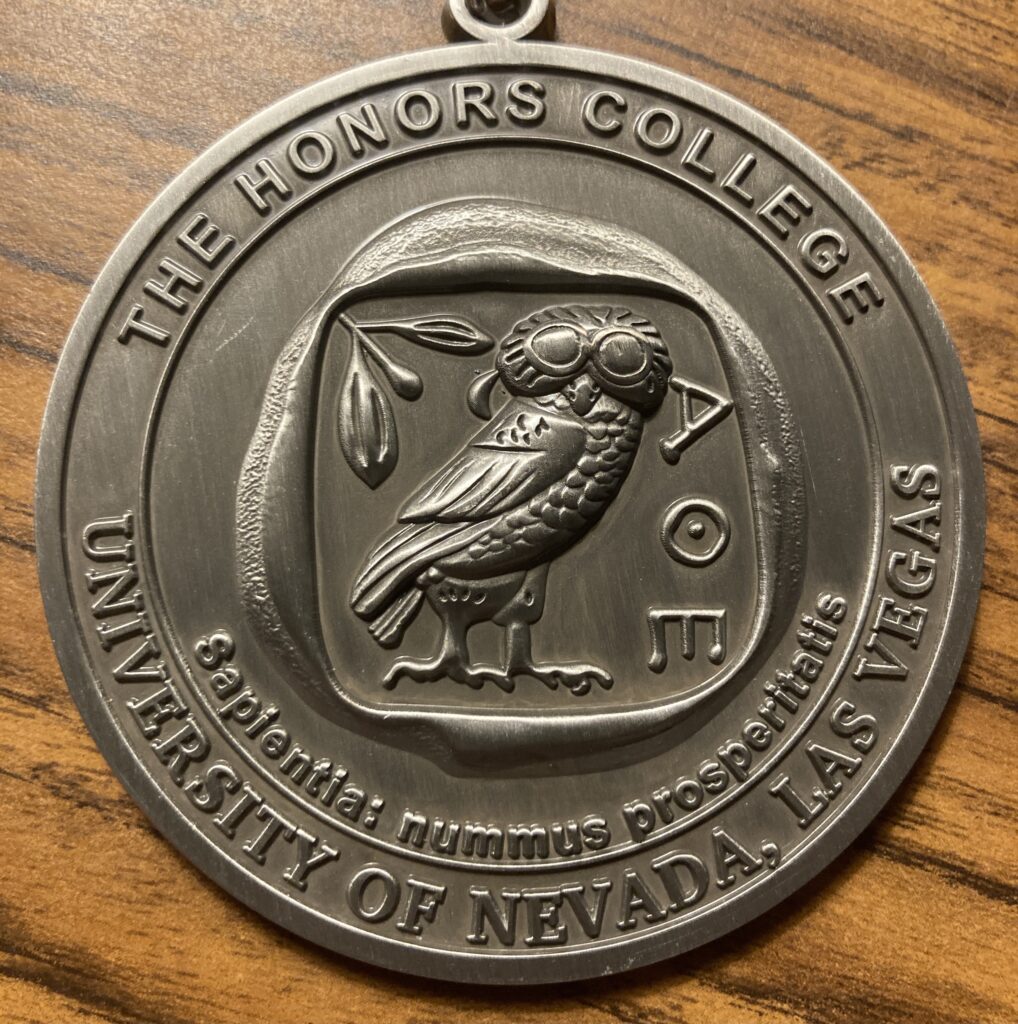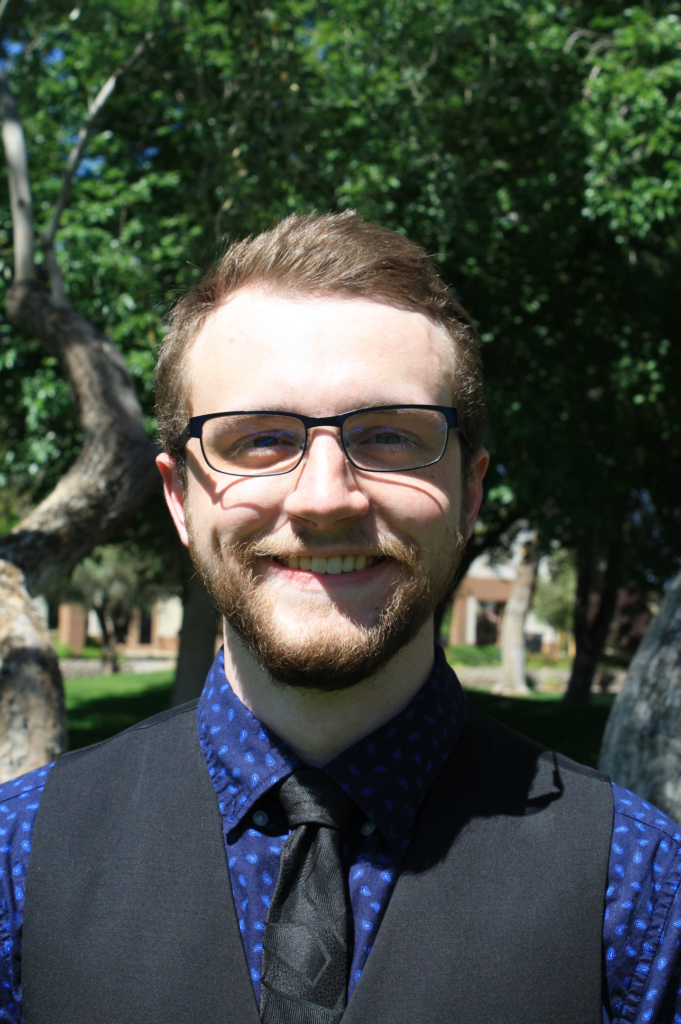
The Challenge and Reward of Tackling an Honors Thesis

I have been interested in meditation since I was young. I have meditated off and on for most of my life, and I have read many books on Buddhist, Vedic, and Taoist philosophy. I am fascinated with the accounts of long-term meditators experiencing altered states of consciousness, including self-transcendence and feelings of oneness with the universe. Thus, as I approached the end of my undergraduate career, I seized the opportunity to do an honors thesis exploring meditation’s effect on sense of self. See the Appendix to read my thesis abstract.
Step by step, I formed a research question, designed a study, applied for and received IRB approval, recruited participants, analyzed data in R, and wrote up results in an APA-style document. In April 2021, I successfully defended my thesis before my committee: Dr. Kim Barchard, Professor Jaclyn Costello, and Dr. Paul Nelson. Then in May, I presented my research during a podium presentation at the Office of Undergraduate Research Virtual Undergraduate Research Symposium. In the near future, I plan to submit my research for publication in an academic journal. This thesis project greatly improved my writing, research, and data analysis skills, but it also taught me about patience, perseverance, and fortitude. I proved to myself that I can overcome obstacles that seem overwhelming.
I ran into instances where I felt like giving up. For example, I ran into trouble when I attempted to set up automatic payments for my participants. I was attempting to recruit participants through Amazon Mechanical Turk (Mturk), a site that gives companies and researchers access to a pool of freelance workers who complete tasks that only human beings can do. In my IRB proposal, I said I would pay participants automatically, as soon as they completed my study. However, all the information I found on setting up automatic payments was outdated. I became increasingly frustrated; I spent over 50 hours trying to solve this one problem and made no progress. The deadline for data collection was approaching fast and I was falling behind. There was no clear path forward. I repeatedly contemplated giving up. Yet I persevered: I read academic and non-academic articles, learned about Amazon Web Services, completed tutorials, and searched for alternative options. I kept pushing, and trying, and searching for a solution. Fortunately, my persistence paid off. I found a site, CloudResearch, that adds functionality to Mturk studies: They would solve my immediate problem of paying participants automatically and they included additional features that simplified the set-up process. I made the deadline for data collection three days early and learned an important lesson about perseverance in the face of challenges.
This is only one example among many: Each step of the research process had its own trials and accompanying lessons. I took five months to settle on a research question, which taught me about patience. I went through multiple rounds of IRB revisions, which taught me about persistence. I had to solve several problems with my R code, which taught me about fortitude. I incorporated feedback from mentors and peers, which taught me about community. As I overcame each obstacle, I learned that I have what it takes to push myself beyond my previous limits and to grow – both as a researcher and as an individual. Each of these lessons has enriched my life, an irreplaceable reward for tackling such an ambitious project.
Completing an honors thesis has been the most challenging and rewarding experience of my undergraduate career. I am grateful for all that I learned over the last year and half working with Dr. Barchard and my committee members. I consider the honors thesis to be the pinnacle of my university accomplishments – the achievement of a long-term goal that I will remember for the rest of my life. If you are considering doing an honors thesis, know that it is one of the most challenging things you can do as an undergraduate and also one of the most rewarding.
 J.D. Watt joined the Interactive Measurement Group in Summer 2019. During his time in the lab, he co-authored two conference posters, an invited talk at a teaching conference, and ten published statistics assignments. He was also our Lab Manager for three semesters, when we innovated extensively to adapt to an online format and simultaneously expand the size of our lab. J.D. recently graduated summa cum laude from UNLV with his Bachelor of Arts in Psychology. He will be attending General Assembly’s Software Engineering Immersive Remote this summer to learn the skills he needs to pursue his goal of becoming a software developer. Congratulations, J.D.!
J.D. Watt joined the Interactive Measurement Group in Summer 2019. During his time in the lab, he co-authored two conference posters, an invited talk at a teaching conference, and ten published statistics assignments. He was also our Lab Manager for three semesters, when we innovated extensively to adapt to an online format and simultaneously expand the size of our lab. J.D. recently graduated summa cum laude from UNLV with his Bachelor of Arts in Psychology. He will be attending General Assembly’s Software Engineering Immersive Remote this summer to learn the skills he needs to pursue his goal of becoming a software developer. Congratulations, J.D.!